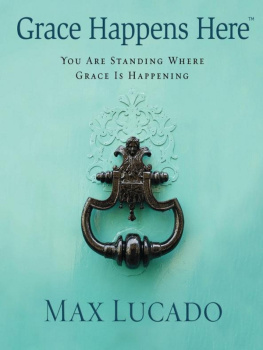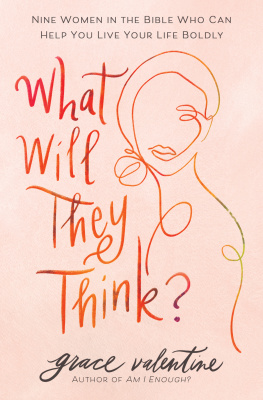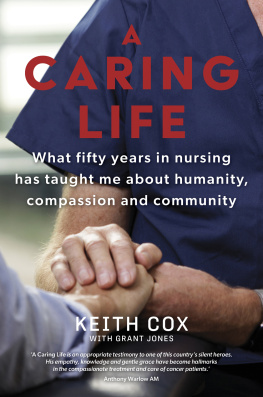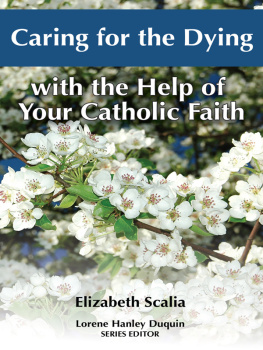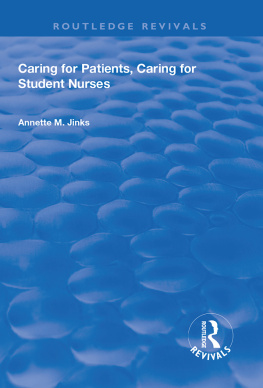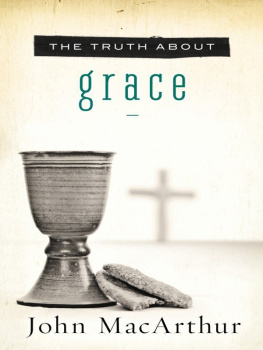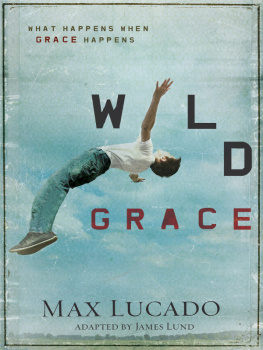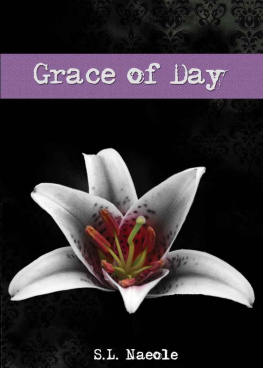Thank you for buying this ebook, published by NYU Press.
Sign up for our e-newsletters to receive information about forthcoming books, special discounts, and more!
Sign Up!
About NYU Press
A publisher of original scholarship since its founding in 1916, New York University Press Produces more than 100 new books each year, with a backlist of 3,000 titles in print. Working across the humanities and social sciences, NYU Press has award-winning lists in sociology, law, cultural and American studies, religion, American history, anthropology, politics, criminology, media and communication, literary studies, and psychology.
CARING ACROSS GENERATIONS
NEW YORK UNIVERSITY PRESS
New York and London
www.nyupress.org
2014 by New York University
All rights reserved
References to Internet websites (URLs) were accurate at the time of writing.
Neither the author nor New York University Press is responsible for URLs that
may have expired or changed since the manuscript was prepared.
LIBRARY OF CONGRESS CATALOGING-IN-PUBLICATION DATA
Yoo, Grace J.
Caring across generations : the linked lives of Korean American families / Grace J. Yoo and
Barbara W. Kim.
pages cm
Includes bibliographical references and index.
ISBN 978-0-8147-6897-6 (hardback) ISBN 978-0-8147-6999-7 (paper)
1. Korean AmericansSocial conditions. 2. Korean AmericansFamily relationships.
3. Older immigrantsUnited StatesSocial conditions. 4. Adult children of immigrants
United States. 5. Adult children of aging parentsUnited States. 6. Immigrant families
United StatesSocial conditions. I. Kim, Barbara W. II. Title.
E184.K6Y756 2014
973.04957dc23
2014002558
New York University Press books are printed on acid-free paper,
and their binding materials are chosen for strength and durability.
We strive to use environmentally responsible suppliers and materials
to the greatest extent possible in publishing our books.
Manufactured in the United States of America
10 9 8 7 6 5 4 3 2 1
Also available as an ebook
ACKNOWLEDGMENTS
Our friendship spans over twenty years of working in various capacities towards the development of Asian American studies on college campuses, as well as writing grants and researching health and social issues impacting the Korean immigrant community. Through a 2005 Community Grant Award from the Korean American Economic Development Center, we surveyed more than 268 Korean immigrant small-business owners in the state of California on their health insurance and retirement savings needs. Somewhere in the midst of this research collaboration and family updates, we realized that the complex issues facing Korean immigrants also impacted their adult children. As children of Korean immigrants, we joked that we were our parents retirement plans, although we had no clear idea of how others in similar predicaments actually cared for and supported parents in retirement.
The desire to understand these experiences was rooted in the journeys of supporting our own aging parents. At various moments in our research collaboration, we also experienced numerous changes in our parents health and losses in our extended families, and we wondered how other adult children with competing demands could be there for their immigrant parents. We knew that demographically, we were not alone in grappling with this question. As the first cohort of the largely post-1965 Korean immigrants (of the larger baby boomer generation) entered older adulthood, we wanted to understand how adult children of Korean immigrants were preparing to care or currently caring for their aging parents and how family histories and past relations affected care-giving attitudes, expectations, and practices. The California State Universitys Office of Community Service Learning awarded us a Collaboration Minigrant through its Multi-Campus Engaged Scholarship Initiatives Program and got us started in 2006. Research, Scholarly, and Creative Activities (RSCA) awards from California State University, Long Beach provided time to work on the book project while awards from San Francisco State University helped fund a research assistant and participant incentives.
Our book would not have been possible without the support of a large community of people. First, we would like to thank our research assistants: Kathie Ahn, Steve Chae, Jeanelle Chang, Jason Chung, Veronica Gomez, Ellie Hong, Charles Kim, Enoch Kim, Amy Lee, Jonathan Lee, Man Ng, Gabriel Oh, Eunjung Park, and Jenny Suh. We would like to thank students from the Fall 2006 and Spring 2007 AAS 380 Koreans in America course at San Francisco State who assisted with data collection. Students in the Fall 2011 ASAM 495/595 Seminar in Asian American Studies at CSULB read transcripts and manuscript drafts and provided feedback. Margaret Rhee became involved in this project as a graduate research assistant and eventually co-authored an article on adult children, love, and marriage; we are so thankful for her invaluable assistance with data collection and analysis during the early stages of the project. We are also thankful to our students, many of whom are children of immigrants and/or the first generation in their families to go to college, for their enthusiasm and support for this project.
Our colleagues generously listened, read, and offered advice at different stages and helped us develop a conceptual framework over the years. Michael Omi provided guidance and feedback at its initial stages. We are grateful to those who commented on earlier drafts, shared theory with us and/or provided encouragement throughout this process including Caryn Aviv, Karra Bikson, Edith Chen, Ellen G. Levine, Judy Goldstein, Linda Juang, Mai Nhung Le, Allen LeBlanc, Alan Oda, Gabriela Segovia-McGahan, Amy Sueyoshi, Barbara Ustanko and Emily Han Zimmerman. Russell Jeung provided constructive criticism at all stages and read the final chapters. We are especially indebted to Wei Ming Dariotis, who read and edited the manuscript while caring for her ailing father
We want to thank our colleagues at SFSU and CSULB who have provided congenial and supportive academic homes. Special acknowledgements in the College of Ethnic Studies and the Asian American Studies Department at SFSU go to Laureen Chew, Wei Ming Dariotis, Lorraine Dong, Robert Fung, Daniel Phil Gonzales, Marlon Hom, Russell Jeung, Betty Kano, Ben Kobashigawa, Mai Nhung Le, Jonathan Lee, Kenneth Monteiro, Becky Mou, Isabelle Pelaud, Eric Pido, Valerie Soe, Anantha Sudhakar, Allyson Tintiangco-Cubales, Wesley Ueunten, and Jeannie Woo. Barbara Kim would like to thank Chi-Ah Chun, Linda Espaa-Maram, Henry Fung, Lawrence Hashima, Simon Kim, Karen Nakai, Alan Nishio, Karen Quintiliani, Mary Ann Takemoto, Dean Toji, John Tsuchida, Kris Zentgraf, and colleagues in the Department of Asian and Asian American Studies at CSULB. John M. Liu and Gail M. Nomura provided exuberant and unflagging mentorship, professional and personal, over the years; we thank you.
It takes a village to complete a book. Grace Yoo thanks sister Alice, nieces Michelle and Jeanelle, babysitters Erin McCoy and Silvia Garcia, and the wonderful community of parents in the city of Pacifica who organized a carpool and provided a playdate for Albert and Jeremy so another paragraph could be written. Barbara Kim thanks Elizabeth Berger, Deana Chuang, Nancy Yum Gil, Patricia-Anne Johnson, Joanne Kim, Young Kwak, Anne Manalili, Linda Maram, Karen Moon, Allyson Nakamoto, Hyun Joo Oh, Eve Oishi, Rowena Robles, Maythee Rojas, Anna Sandoval, Julie Wong, Alice Yoo, Anne Yu, and Sunny Yun, who enriched this project and her life with their friendships, wisdom, laughter, and good food in more ways than they can know.



